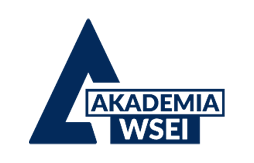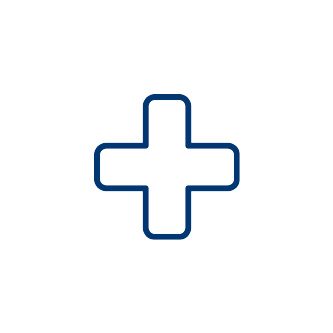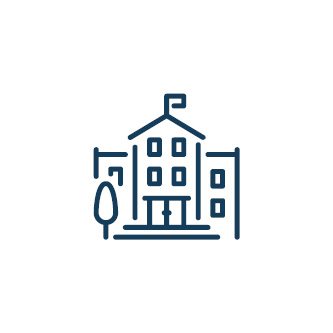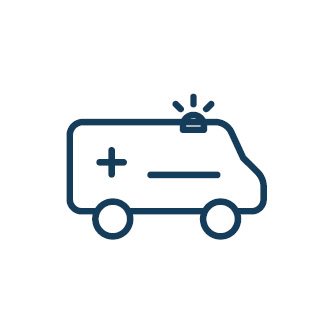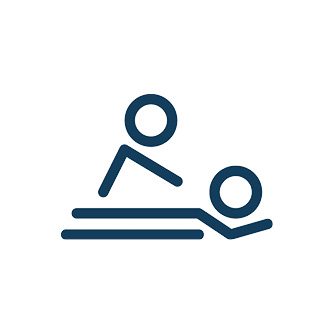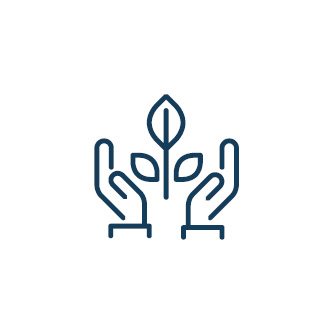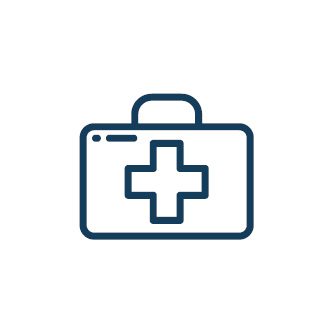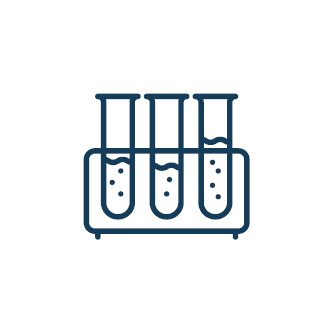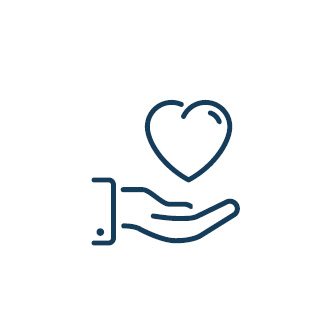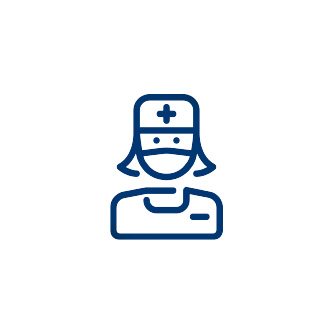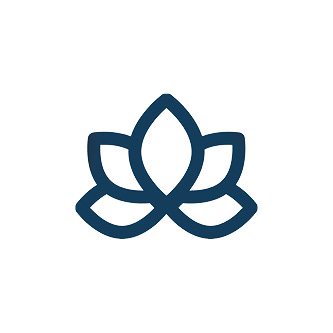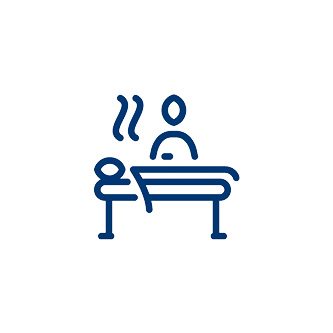Nursing 2nd degree – The profession of a nurse is a profession with a future. The constant shortage of hospital and clinic nursing staff means that the professional position of nurses is growing, their earnings are also growing. This gives the entire professional group an incentive to continue education, and encourages employers to offer more and more favorable employment conditions and promotions. One of the significant factors influencing professional advancement is obtaining higher education. The University of Economics and Innovation offers such an opportunity. Second-cycle studies are an ideal proposition for people who want to expand their knowledge even more, and also think about a scientific career. Learning modern nursing is conducted in a modern Monoprofile Medical Simulation Center that the University has. This laboratory, dedicated only to this field, allows for the highest quality of second-cycle studies.
Level: 2nd degree master’s studies
Mode: Stationary
Duration: 2 years /4 semesters
Obtained education: Master of Nursing
Practical Traineeship : 200h
Profile: Practical profile of studies
Education program
The program assumptions define the full range of requirements, and at the same time the role for which the student will be prepared, i.e.,
- planning, organizing and implementing nursing care
- providing service for the promotion, preservation and prevention of illness
- providing holistic and personalized care for the sick, the disabled and the dying
- providing medicinal and rehabilitation services in accordance with applicable regulations;
- preventive, diagnostic
- cooperation as a member of the healthcare team
- initiating and supporting local community health initiatives
- following the principles of professional ethics
- cooperating professionals to ensure total care for the individual and the family
- communicating with the patient, his family and other professionals
- development of a nursing practice, critical thinking and scientific research by applying current knowledge in practice in the fields of medical science, social sciences, nursing theory, legal regulation of the profession and health care.
Practical classes and internships during the studies takes place in various health care institutions and include practical improvement of professional skills acquired in the course of the directional subjects, which allows to get to know the realities of the profession. It is noteworthy that the University practices international exchange of student internships.
The graduate of second degree studies will have the skills to:
- provide personalized nursing care,
- organize and supervise nursing care and health protection of state, local, social and private institutions operating in the health care system,
- sanitary and epidemiological surveillance,
- government and local government institutions,
- implement new methods,
- techniques and organizational solutions,
- forecast and shape the structure and quantity of health and medical services of the population,
- the content and organization of human resources management,
- coordinate the activities of the institution and the organization and management of health care and social assistance;
- Identify areas for research and participation in research.
- The graduate will have a well-developed habit of continuing education and professional development.
The graduate of the second-degree studies has advanced (in relation to the first-degree studies) knowledge of social sciences and medical sciences. He has the ability to participate in the implementation of prevention tasks in the field of: social care; health promotion; health education; and improve the health of the society.
The graduate has the competence to perform managerial duties in:
- institutions performing public health tasks;
- public and non-public health care facilities;
- health insurance institutions, the National Sanitary Inspection and institutions acting for the protection of the natural environment. The graduate possesses specific skills for identifying and forecasting the threats and health problems of a given population;
- recognizing the impact of social processes and demographic structures on health of the human population;
- planning, developing, organizing and evaluating the effectiveness and evaluation of prevention and health promotion programs for different social backgrounds;
- mobilizing the public to implement state and local health policies;
- management – based on legal norms and modern management techniques – of health care institutions and institutions dealing with broadly defined public health;
- organizing and securing the functioning of the medical service structures in the field of universal and private health and social insurance in the range of treatment, rehabilitation, long-term care and social care;
- management of the Integrated Medical Rescue System and crisis information system;
- control and assessment of sanitary and epidemiological status at a national and regional level and the organization of remedial and corrective actions;
- collection and analysis of economic costs of medical services, rehabilitation, prevention and promotion of health;
- the use of knowledge about the objectives and tasks of public health in the European Union to enrich the programs of protection and promote health in the local environment;
- development of expert reports, publications and public health publications and the use of professional foreign language literature.
The modules/subjects of basic education provide knowledge of anatomy, physiology and human development, from conception to late old age. It covers all processes occurring in the body, sources, mechanisms, basic pathological processes, problems and achievements of modern medicine such as transplantology, cloning, genetics, aging processes and death. The issues of health hazards occurring in the environment of residence, education and work are covered and the assumptions of the social and health policy of the state and organization of the health care system and the importance of the structure and resources of nursing are discussed. The entire program block is complemented by knowledge in the field of pharmacology, psychology, sociology and pedagogy, allowing you to fully understand the functioning and behavior of a person whom they will embrace with holistic care in the future and communicate well with him.
A group of courses/subjects of directional education prepares to gaining skills of maintaining contact with healthy and ill people, identify patients’ health problems, plan, implement and document the provided nursing care and collaborate with the interdisciplinary team.
Module/program-specific and specialty subjects additionally prepare for the profession and enable deepening of directional education in the field of knowledge, skills and nursing competencies.
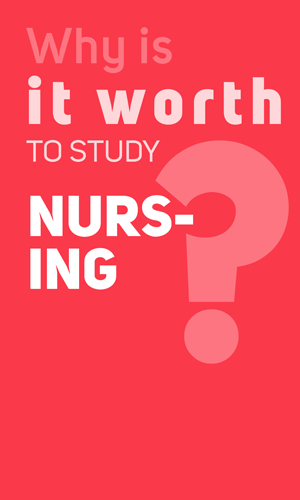
Highly qualified teaching staff with rich academic achievements and professional experience: outstanding specialists in their fields, professors of medical academies, persons with a doctoral degree in medical sciences and highly qualified doctors and nurses
COMBINE STUDIES WITH WORK – the studies are also aimed at those already working, who want to improve their professional qualifications or get new ones
The education program is adapted to labor market requirements and constantly updated in cooperation with partner institutions, preparing specialized staff in pedagogy; the most modern laboratories and nursing offices
International exchange visits to partner universities abroad
Support of academic and administrative staff and business partners
A group of modules/subjects of directional education prepares to gain the ability to maintain contact with healthy and ill people, identify patients’ health problems, plan, implement and document nursing care and collaborate with the interdisciplinary team, and prepare them for occupational training and deepen directional education in the field of nursing, knowledge, skills and nursing competencies.
The University is recognized by independent institutions in educational rankings; The obtained certificates confirm recognition of following high educational standards, actively supporting their students and graduates in undertaking professional challenges and achieving their goals in the labor market.
The faculty has KRASPIP accreditation.
Nursing studies in Poland are covered by Directive 2005/36/EC of the European Parliament and of the Council, which allows international comparability of professional qualifications of nurses.
Work and career
Tuition Fees
| MASTER`S DEGREE | |||
| FIELD OF THE STUDY | YEARS / SEMESTERS | TUITION FEE (per year) | TUITION FEE (per semestr) |
| Nursing | 2 years / 4 semesters | € 3 000 (Euro) | € 1 500 (Euro) |
| MASTER`S DEGREE | |||
| FIELD OF THE STUDY | YEARS / SEMESTERS | TUITION FEE (per year) | TUITION FEE (per semestr) |
| Nursing | 2 years / 4 semesters | € 3 000 (Euro) | € 1 500 (Euro) |
